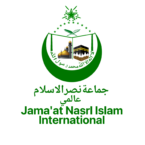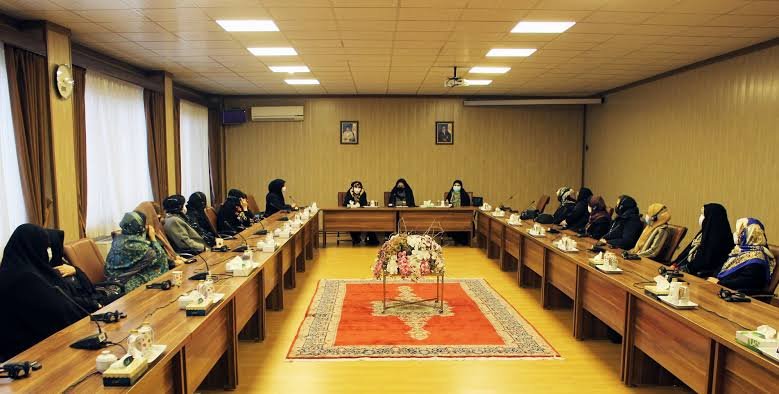Islamic diplomacy has a rich historical background dating back to the time of Prophet Muhammad (peace be upon him), who engaged in diplomatic missions with various tribes and nations. Over the centuries, Islamic principles have influenced the conduct of diplomacy among Muslim-majority countries and in interactions with the broader international community.
In the modern era, with the globalization of political and economic interactions, the role of Islamic principles in shaping international diplomacy has become increasingly significant. This article aims to analyze the evolving nature of Islamic diplomacy and its interaction with the broader context of international relations.
THEORETICAL FOUNDATIONS:
Islamic Principles in Diplomacy: Islamic diplomacy is rooted in principles such as justice, peace, and compassion. The Quran and Hadith provide guidance on ethical conduct, fair treatment of others, and the peaceful resolution of disputes. The principles can serve as a foundation for diplomatic practices on the global stage, fostering cooperation and mutual understanding.
Challenges at the Intersection: While Islamic principles emphasize justice and equality, challenges arise when these principles intersect with the complex realities of international diplomacy. The article discusses instances where geopolitical interests may conflict with Islamic values, leading to diplomatic tensions. It also addresses challenges related to the perception of Islam in the international arena and the impact of stereotypes on diplomatic relations.
Maqasid al-Shariah in Diplomacy: The article explores how the objectives of Islamic law, as outlined in Maqasid al-Shariah, can shape the goals and outcomes of diplomatic efforts. These objectives, including the preservation of faith, life, intellect, progeny, and wealth, provide a comprehensive framework for ethical and just diplomacy.
Diplomacy in the Islamic Tradition: Drawing upon classical Islamic scholars and historical examples, the article discusses the principles of diplomacy within an Islamic context. It examines the concept of ‘sulh’ (reconciliation) and ‘ta’awun’ (mutual assistance), highlighting their relevance to modern diplomatic practices.
HISTORICAL PERSPECTIVES:
Golden Age of Islam: The era of the Islamic Golden Age, emphasizing the role of Islamic civilization in promoting cultural exchange, scientific collaboration, and diplomatic relations with various empires.
Colonial Period and its Impact: Analyzing the impact of colonialism on Islamic countries, the article examines how colonial legacies continue to shape diplomatic challenges in the contemporary era.
CONTEMPORARY CHALLENGES:
Contemporary Relevance of Islamic Diplomacy: In the contemporary geopolitical landscape, Islamic nations play a crucial role in shaping international affairs. The role of Islamic organizations, such as the Organization of Islamic Cooperation (OIC), in addressing global challenges and promoting cooperation among member states. Additionally, it analyzes how Islamic nations engage in diplomatic initiatives to address issues ranging from human rights to economic development.
Identity Politics and Diplomacy: The article addresses the challenges posed by identity politics in Islamic diplomacy, considering how religious identities can impact diplomatic relations both within the Muslim world and with non-Muslim nations.
Islamic Finance and Global Economics: Analyzing the influence of Islamic finance on global economic diplomacy, the article explores how Islamic financial principles contribute to shaping international economic policies.
Case Studies: The article provides case studies of specific diplomatic engagements involving Islamic nations, highlighting instances where Islamic principles have positively influenced diplomatic outcomes. By examining both successful and challenging scenarios, it aims to offer insights into the practical application of Islamic diplomacy on the global stage.g
Prospects for the Future: As the global landscape continues to evolve, the article explores the prospects for Islamic diplomacy in the future. It considers potential areas of collaboration and conflict, taking into account the changing dynamics of international relations and the evolving role of Islamic nations in shaping the world order.
CONCLUSION:
Islamic and international diplomacy are intertwined in a complex relationship that requires careful examination. This article seeks to contribute to a deeper understanding of this relationship by exploring the historical roots, contemporary relevance, challenges, and future prospects of Islamic diplomacy on the international stage. Recognizing the potential for positive contributions, it advocates for a more inclusive and informed approach to diplomatic engagements that respects and integrates Islamic principles into the global discourse. It emphasizes the need for a nuanced understanding of Islamic principles to navigate the challenges and opportunities presented in the complex landscape of international relations. As the world becomes increasingly interconnected, recognizing the role of Islamic diplomacy is essential for fostering cooperation and understanding among nations.


Your article helped me a lot, is there any more related content? Thanks!
I don’t think the title of your article matches the content lol. Just kidding, mainly because I had some doubts after reading the article.
Your point of view caught my eye and was very interesting. Thanks. I have a question for you.
Can you be more specific about the content of your article? After reading it, I still have some doubts. Hope you can help me.
Can you be more specific about the content of your article? After reading it, I still have some doubts. Hope you can help me.
With a focus on precision and reliability, BWER offers state-of-the-art weighbridge systems to Iraq’s industries, meeting international standards and supporting operational efficiency.
شركة Bwer هي أحد الموردين الرئيسيين لموازين الشاحنات ذات الجسور في العراق، حيث تقدم مجموعة كاملة من الحلول لقياس حمولة المركبات بدقة. وتغطي خدماتها كل جانب من جوانب موازين الشاحنات، من تركيب وصيانة موازين الشاحنات إلى المعايرة والإصلاح. تقدم شركة Bwer موازين شاحنات تجارية وموازين شاحنات صناعية وأنظمة موازين جسور محورية، مصممة لتلبية متطلبات التطبيقات الثقيلة. تتضمن موازين الشاحنات الإلكترونية وموازين الشاحنات الرقمية من شركة Bwer تقنية متقدمة، مما يضمن قياسات دقيقة وموثوقة. تم تصميم موازين الشاحنات الثقيلة الخاصة بهم للبيئات الوعرة، مما يجعلها مناسبة للصناعات مثل الخدمات اللوجستية والزراعة والبناء. سواء كنت تبحث عن موازين شاحنات للبيع أو الإيجار أو التأجير، توفر شركة Bwer خيارات مرنة لتناسب احتياجاتك، بما في ذلك أجزاء موازين الشاحنات والملحقات والبرامج لتحسين الأداء. بصفتها شركة مصنعة موثوقة لموازين الشاحنات، تقدم شركة Bwer خدمات معايرة موازين الشاحنات المعتمدة، مما يضمن الامتثال لمعايير الصناعة. تشمل خدماتها فحص موازين الشاحنات والشهادات وخدمات الإصلاح، مما يدعم موثوقية أنظمة موازين الشاحنات الخاصة بك على المدى الطويل. بفضل فريق من الخبراء، تضمن شركة Bwer تركيب وصيانة موازين الشاحنات بسلاسة، مما يحافظ على سير عملياتك بسلاسة. لمزيد من المعلومات حول أسعار موازين الشاحنات، وتكاليف التركيب، أو لمعرفة المزيد عن مجموعة موازين الشاحنات ذات الجسور وغيرها من المنتجات، تفضل بزيارة موقع شركة Bwer على الإنترنت على bwerpipes.com
Can you be more specific about the content of your article? After reading it, I still have some doubts. Hope you can help me.
Thanks for sharing. I read many of your blog posts, cool, your blog is very good.
Thanks for sharing. I read many of your blog posts, cool, your blog is very good.
Thanks for sharing. I read many of your blog posts, cool, your blog is very good.
Your article helped me a lot, is there any more related content? Thanks!
Your point of view caught my eye and was very interesting. Thanks. I have a question for you.
Your point of view caught my eye and was very interesting. Thanks. I have a question for you. https://accounts.binance.com/si-LK/register?ref=V2H9AFPY
أنابيب FRP في العراق في شركة إيليت بايب، نقدم مجموعة شاملة من أنابيب البلاستيك المدعمة بالألياف الزجاجية (FRP) التي تم تصميمها لتوفير أداء استثنائي وموثوقية. تم تصميم أنابيب الـ FRP لدينا لتوفير مقاومة ممتازة للتآكل، والتآكل، والهجمات الكيميائية، مما يجعلها مناسبة لمجموعة واسعة من التطبيقات، بما في ذلك معالجة المياه، ومعالجة المواد الكيميائية، وأنظمة الصرف الصناعية. التزامنا بمعايير التصنيع العالية والحلول المبتكرة يضع شركة إيليت بايب كخيار أول لأنابيب FRP في العراق. نفخر بسمعتنا في الجودة والموثوقية، مما يضمن أن منتجاتنا تلبي أعلى معايير الصناعة. تفضل بزيارة elitepipeiraq.com لمزيد من التفاصيل.
ABS Pipes : Known for toughness and impact resistance, ABS pipes are commonly used in drainage systems. ElitePipe Factory in Iraq produces durable ABS pipes.
Thank you for your sharing. I am worried that I lack creative ideas. It is your article that makes me full of hope. Thank you. But, I have a question, can you help me?
Your article helped me a lot, is there any more related content? Thanks!
Thank you for your sharing. I am worried that I lack creative ideas. It is your article that makes me full of hope. Thank you. But, I have a question, can you help me?
I don’t think the title of your article matches the content lol. Just kidding, mainly because I had some doubts after reading the article.
Your article helped me a lot, is there any more related content? Thanks!